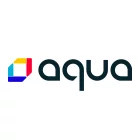
Container & DevSecOps Digest | November: Docker Embraces Kubernetes; New Survey Finds Perception and Ownership Gaps in Container Security; Red Hat Wraps OpenStack In Containers
Last month at DockerCon Europe, Docker announced that it now supports Kubernetes in a move that clearly indicates the popularity of Kubernetes in the container ecosystem. We also learned in a recent survey that experts and the market see eye-to-eye when it comes to identifying current top security focus areas in container security. Lastly, we released Aqua 2.6 which delivers production-ready runtime security for Windows container applications
Sir, you’re doing 60 in a 30mph container zone. What are you, some kind of devops cop?
Well… we prefer containerised app info highway code

Aqua Security Moves its U.S. Headquarters to the Boston Area, Expands its Executive Team
Aqua Chooses Boston For its Exceptional Talent Base and Thriving CyberSecurity Community; Hires New Executives Jeff Ginter to Lead Sales, Linda Matthews to Lead Customer Success Boston, MA, November 1, 2017 – Aqua Security, the market-leading container security platform provider, today announced it has formally moved its U.S. Headquarters to Burlington, MA. As part of …

Aqua Security Bolsters Container Security
Now that containers are showing up with increased frequency in production environments, the challenges associated with securing those containers are becoming more apparent to developers and IT security teams alike.

How Docker APIs can be misused to plant malware
Researchers discovered how Docker APIs can be exploited to hide malware. Dave Shackleford explains the attack method and the threat it poses to container and virtual machines.

Contesting Control of Container Security
According to a new study from Aqua, container security ownership currently breaks down by department into 43% DevOps, 36% security, 13% DevSecOps, with 8% falling elsewhere.
How to keep your container secrets secure
Your code needs secrets in order to do its job–things like passwords, access tokens, and API keys. It’s critical that these secrets don’t fall into the wrong hands, so managing those secrets is an essential part of your overall security strategy.

Enterprise container security: There’s room for improvement
To learn the current state of container security in the enterprise, Aqua Security surveyed 512 individuals meeting the criteria of using containers in development or production today or planning to use them in the near future.
